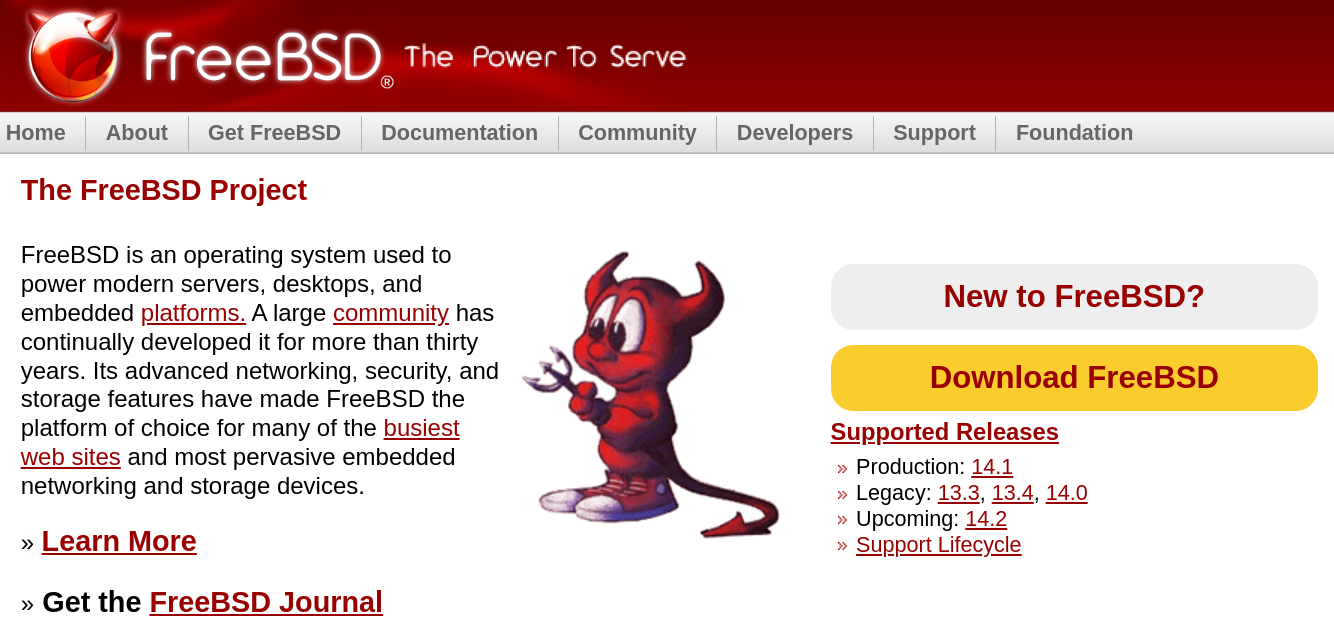
In a world full of Linux and Windows-based operating systems, there are some BSD-based derivatives that aim to challenge the status quo by offering a more efficient, secure, and reliable family of operating systems.
One such option is FreeBSD, which is certainly one of the most popular BSD variants out there. Its focus has long been on server and embedded platforms, with comparatively less attention being paid to the more casual/common side of the computing market, namely laptop users.
Luckily, things are about to get better in this regard thanks to a new initiative from the FreeBSD Foundation in partnership with some key stakeholders, which will see a greater emphasis on laptop support.
FreeBSD To Focus On Laptops: What To Expect?

In collaboration with Quantum Leap Research, the FreeBSD Foundation has earmarked $750,000 in funding to expand laptop and general platform support in FreeBSD by focusing on a handful of key objectives.
From that, $250,000 will come from Quantum Leap Research and $500,000 from the FreeBSD Foundation. The total targeted amount for the project is set at a hefty $1 million, with other organizations like Dell, AMD, and Framework also set to chip in 🤯
The foundation is looking to make up the $250,000 deficit by inviting financial support from other organizations as well. (NVIDIA could set aside some dollars, couldn't they? 🤷)
Where Does The Money Go?
With this new funding, they intend to fill the gaps in laptop support for FreeBSD that have long been hindering the operating system's mainstream adoption. The initiative will be focusing on the following key areas:
- Improving wireless connectivity by bolstering chipset support.
- Upgrading FreeBSD's scheduler to support heterogeneous computing.
- Providing better support for Intel and AMD GPUs by integrating the latest DRM drivers.
- Handling novel buttons, touchpad gestures, and any such unique hardware components found on modern laptops.
- Upgrading audio performance by implementing better audio routing, headphone switching, and digital microphone (DMIC) functionality.
- Working on bringing modern power-saving techniques like s2idle and s0ix to improve suspend/resume behavior as well as battery life on laptops.
By doing all this, they are also aiming to increase corporate adoption of FreeBSD by catering to individuals and businesses that prioritize endpoint security.
Interestingly, Quantum Leap Research has revealed that they intend to run FreeBSD as a hypervisor-like solution by employing Bhyve on their laptops to virtualize other operating systems like Linux and Windows.
During the announcement, Deb Goodkin, Executive Director at the FreeBSD Foundation, added that:
This initiative marks a major step forward for FreeBSD, especially for users who rely on laptops for their daily computing needs. By expanding hardware support and enhancing usability features, we are making FreeBSD more accessible to a broader audience.
They also made a call to action to get others to chip in to their efforts by donating to the foundation to help propel FreeBSD to the next level. You can learn more about this initiative by going through the announcement blog.
💬 Are you looking forward to running FreeBSD on your laptop? I sure am! I can't wait to see how this effort pans out.
Suggested Read 📖

- Even the biggest players in the Linux world don't care about desktop Linux users. We do.
- We don't put informational content behind paywall. Your support keeps it open for everyone. Think of it like 'pay it forward'.
- Don't like ads? With the Plus membership, you get an ad-free reading experience.
- When millions of AI-generated content is being published daily, you read and learn from real human Linux users.
- It costs just $2 a month, less than the cost of your favorite burger.
Become a Plus Member today and join over 300 people in supporting our work.










